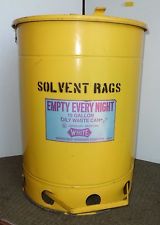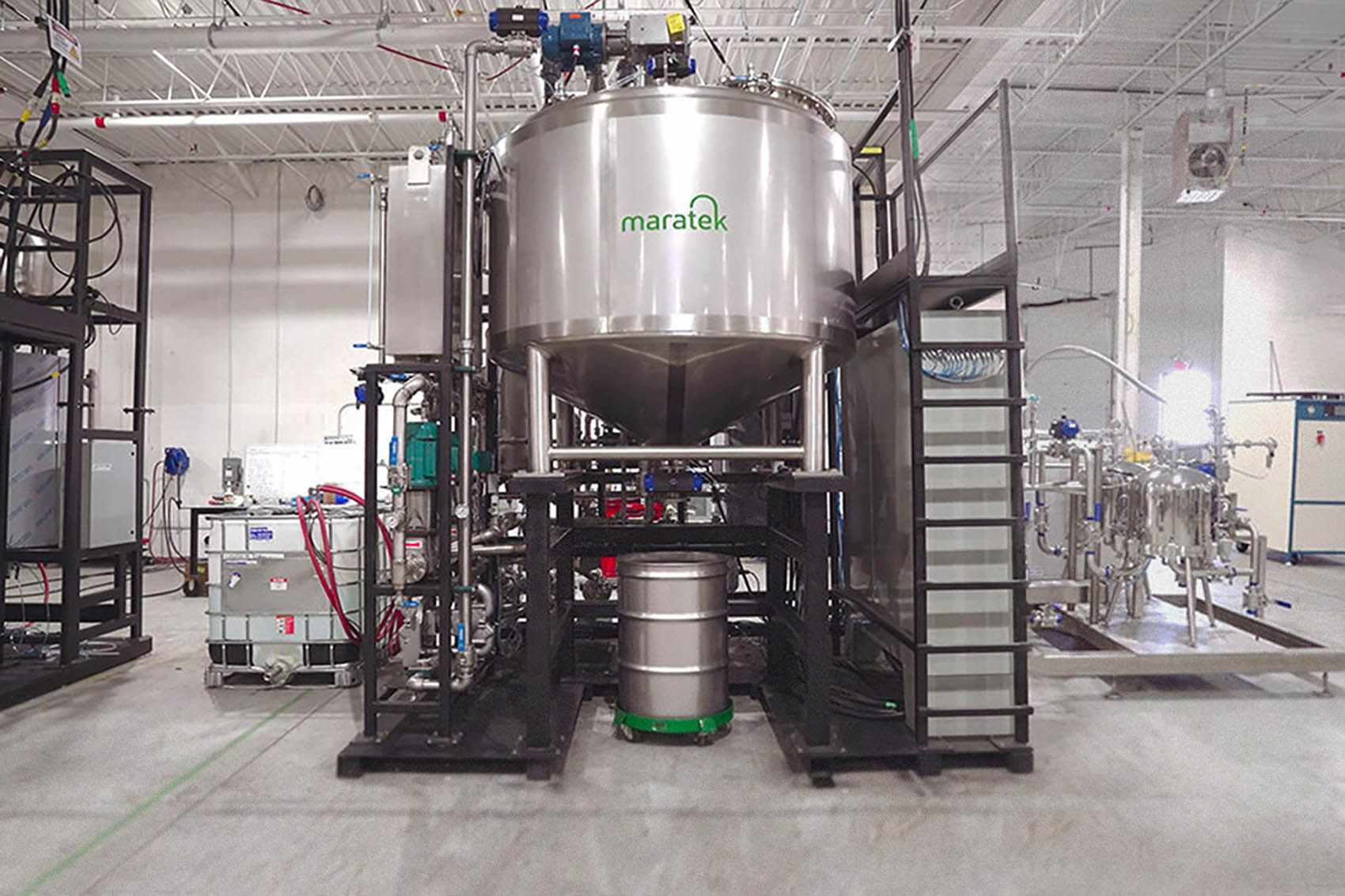New EPA Rules. What's a Solvent-Contaminated Wipe, Can it be Recycled?
 As of January 1st, 2014, just a few days ago, the Environmental Protection Agency (EPA) put into effect a new ruling about managing solvent-contaminated wipes.
As of January 1st, 2014, just a few days ago, the Environmental Protection Agency (EPA) put into effect a new ruling about managing solvent-contaminated wipes.
The EPA has created a helpful Solvent-Contaminated Wipes Final Rule Summary Chart and have provided other documents to help facilities understand the new requirements and determine if an exemption applies to them.
These new rules have been about a decade in the making, but the EPA has recently issued a final rule regarding the management of certain solvent-contaminated wipes.
Whether your facility has reusable shop towels, disposable wipes, or even absorbent mats, this rule may affect the way you manage these items onsite and how to recycle or dispose of them.
Solvent-contaminated wipes include wipes that:
• Contain one or more F001 through F005 listed solvents included in 40 CFR 261.31, or the corresponding P- and U-listed solvents included in 40 CFR 261.33
• Exhibit a characteristic from 40 CFR 261, Subpart C, when the characteristic is from a solvent listed in Part 261
• Exhibit the characteristic of ignitability in 40 CFR 261.21 due to the presence of one or more solvents not listed in Part 261
Wipes that are contaminated with trichloroethylene are not eligible for management under this exemption. Wipes that are contaminated with other hazardous materials, for example, corrosive liquids or other hazardous liquids that are not specifically listed are also ineligible.
How Are Solvent-Contaminated Wipes Managed Under This Rule?
To be eligible for the conditional exemption, both reusable and disposable wipes must be stored, handled and managed properly:
• All solvent-contaminated wipes must be kept in non-leaking, closed containers.
A container is considered closed when there is complete contact between the fitted lid and the rim.
Bags and containers with covers operated by foot pedals may meet this definition for onsite storage, but not for transport, recycling or disposal.
• The container must be labeled “Excluded Solvent-Contaminated Wipes.”
• The wipes must not be accumulated longer than 180 days. (The accumulation start date must be marked on the container to verify this.)
• At the point of transport, the wipes may not contain any free liquids as determined by a paint filter liquids test (EPA Test Method 9095B).
Centrifuging, mechanical wringing, screen-bottom drums, microwave technology and vacuum extractors may be used to remove free liquids from wipes.
• Generators must maintain documentation that they are managing excluded solvent-contaminated wipes.
How Are Solvent-Contaminated Wipes Recycled or Disposed of?
If the wipes contain only the exempted solvents, and if they have been managed properly, they are eligible for exclusion. The spent wipes can now be laundered or disposed of in one of the following ways:
• Reusable wipes must be sent to laundries or dry cleaners that are regulated under Section 301 (effluent discharge restrictions) and 402 (permitting requirements,) or section 307 (indirect discharge to a POTW) of the CWA. The laundry or dry cleaner must manage any free liquids in accordance with RCRA hazardous waste requirements.
• Disposable wipes may be sent to landfills regulated under 40 CFR 258, 264 or 265. Disposable wipes may also be incinerated in licensed combustion units.
• Any free liquids discovered by a launderer, landfill or incinerator must be managed in accordance with RCRA hazardous waste requirements.
What Is a Wipe?
The rule defines a wipe as “a woven or non-woven shop towel, rag, pad, or swab made of wood pulp, fabric, cotton, polyester blends or other material” (40 CFR 260.10).
Traditionally, wipes are used to apply a liquid or to remove contaminants from a surface, but the EPA clarifies that in addition to these uses, wipes may also be used to clean up spills. That means that absorbent mat pads used to clean up any of the solvents affected by this regulation could possibly be managed under this conditional exclusion.




